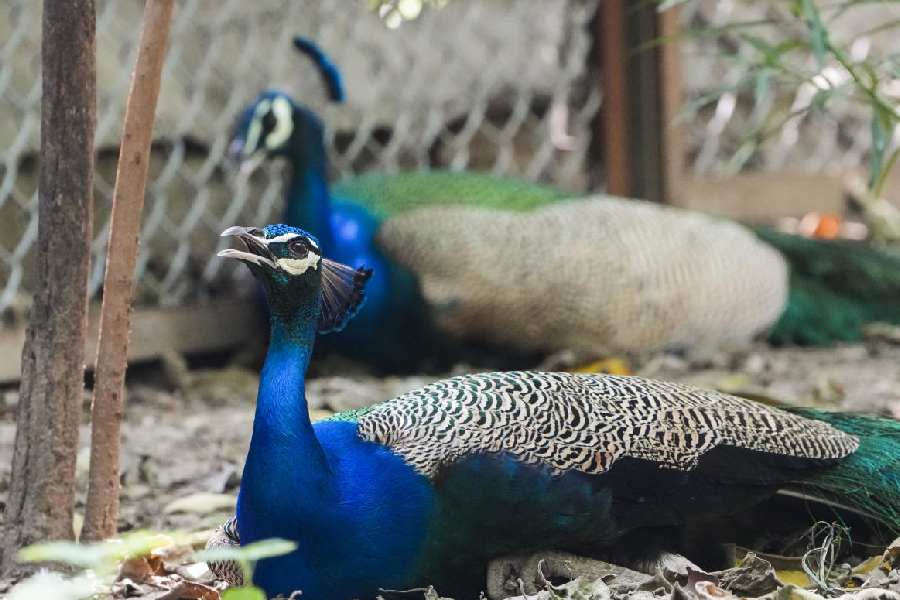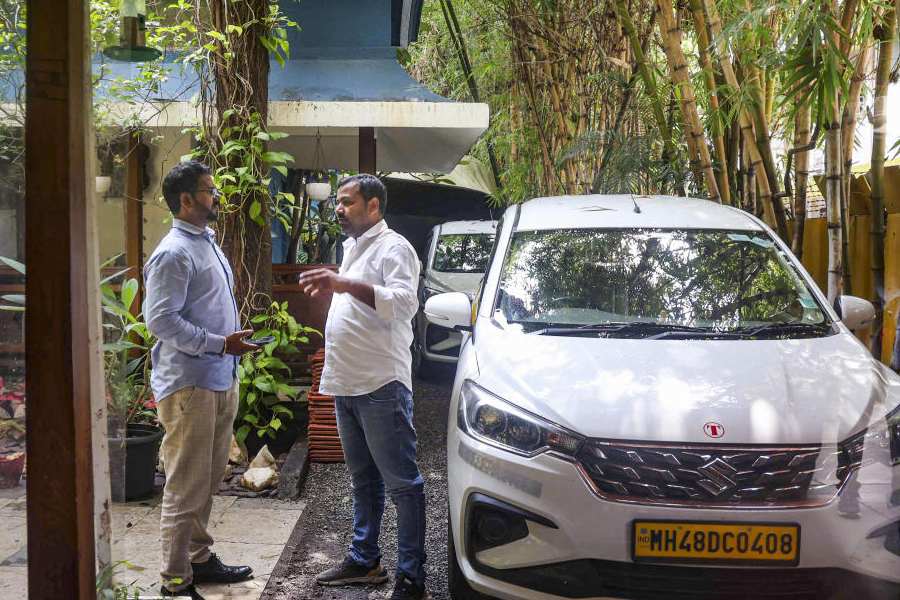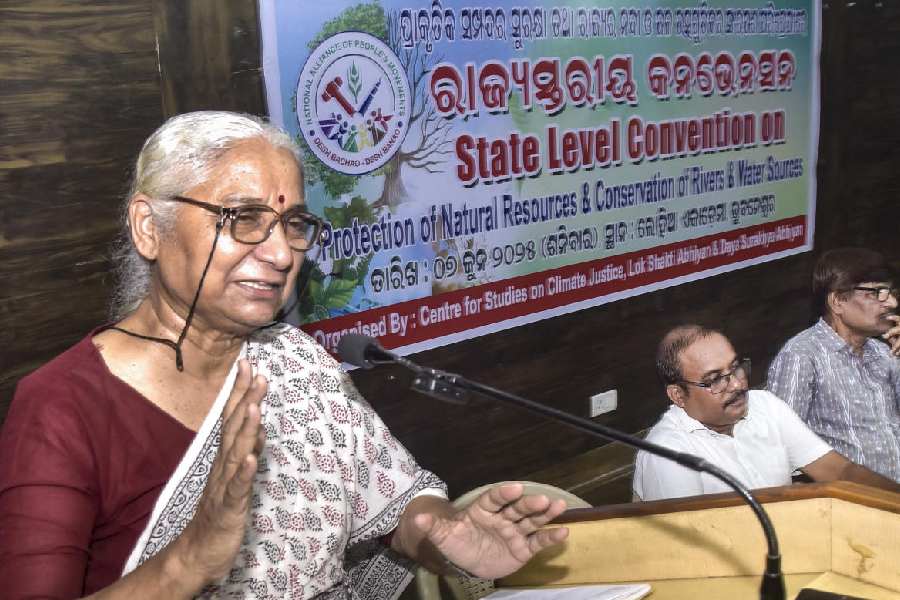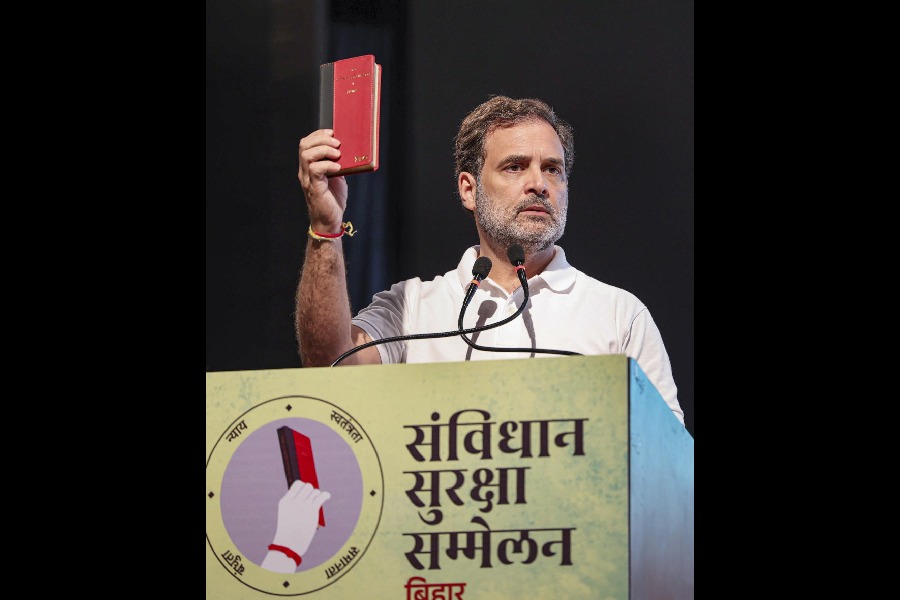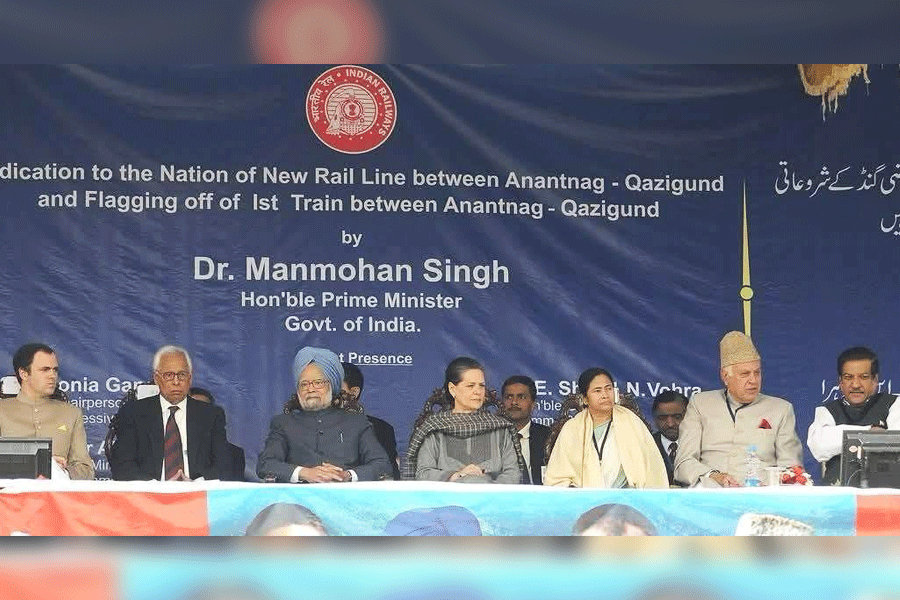.jpg) |
| Red paradise: Standing among her beauties Rasila Kothari inspects gerbera. Pictures by Hardeep Singh |
Ranchi, April 1: For her there’s no greater pleasure than standing tall among red, pink and yellow blooming roses, gerbera and carnation, and taking in their heady perfume.
In fact, Rasila Kothari (45) feels most alive in her 3.5-acre-wide farmhouse at Chandwe village near Boryia, at Kanke. With an area that spreads across a few acres, the area which she fondly calls her “garden” and farmhouse is certainly a little bit more than a just that.
For starters there are three green houses for roses, spread across 1.2 acres, while the carnation and gerbera are accommodated over half-acre of land. And everywhere the plants and the blossoms are grown in a highly controlled and almost hi-tech environment.
The roses (her weaknesses as she readily admits) are grown in an environment where a constant temperature of 25 to 30 degree Celsius and a humidity level between 50 and 60 percent is regularly maintained.
While for the gerbera and carnation, a controlled temperature between 28 and 32 degree Celsius has been selected for optimum growth.
And the blossoms are special, too, as the carnation (some 14 varieties) and the gerbera come from Holland, while the pretty roses, are all from Pune.
But even with such a large project, the enthusiastic gardener employs only a handful of people to help her out in the labour of love.
There are 10 helpers, who are mainly involved in the cutting, pinching and packing of the plants. Also, every day the same group of helpers dispatches 40 to 30 cartons of roses, gerbera and carnation to Delhi, Calcutta, Ranchi, Jamshedpur and Patna from the flower paradise. “The quality of flowers grown in my farm is much better than those grown in Bangalore or Pune, in terms of bud and stem size. Besides, my flowers stay fresh in a vase for 10 to 15 days if they are not damaged,” says a proud Rasila Kothari. And proud she should be, because her farm is the first of its kind in the entire state.
Though she prefers to keep mum about it, Kothari’s plans to export her flowers to Japan, Netherlands and Middle East, where “there is a good market for flowers,” shows that so far her efforts have been a success.
The idea behind the farm is quite an interesting one.
A green enthusiast with a special nose for roses, Kothari maintained and still maintains a beautiful garden at her home. It was that labour of love that led her consultant and city floriculturist Ashok Marwaha to egg her to embark on something bigger and better — a farmhouse specialising in floriculture. “At Pune there are a lot of green house units, which I visited. They provided an insight and helped me to develop my very own floriculture farm,” remembers Kothari.
It was in December 2006, that the project was prepared and passed by National Horticulture Board, Kanke, which provided a 20 per cent subsidy to it. “In 2006 the land was purchased with the help of banks and we started the farm later. Here, we also train helpers, daily for two hours, on the entire process — from looking after the farm and flowers, to the packing of the finished products,” added Kothari.
For those interested, there is a separate packing unit-room where the roses (24 per bunch) are packed in a carton, while 160 to 300 gerbera and carnation are packed together in a box. And the project took a whopping Rs 90 lakh to start. The reason; the fumigation unit and the filter machine from Israel cost quite a pretty penny.
But these machines supplies fertilisers to straight to the plants’ roots making the process that much easy. For plant has three pipes attached in each row to supply fertilisers, and water. Besides, there is a sulphur dose unit used to kill pests. From Kothari’s farm the roses come cheap — Rs 3 to Rs 5. Around 2,500 to 3,000 roses are sent off per day from the farm while 6,000 to 8,000 cut-flowers are packed off to buyers and markets.
But before the sweet smell of success came all the hard work. To translate a childhood dream into a far bigger project, a survey on roses, gerbera and carnation had to be done. Kothari also took part in a three-day-long workshop at Pune, which is considered to be a hub for floriculturists.





